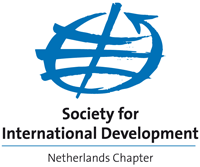Seminar: The State of East Africa Report 2013: One People, One Destiny? The Future of Inequality in East Africa
 In its ‘Africa in 2060’ report published in September 2011, the African Development Bank singled out Greater East Africa – adding Sudan, Ethiopia, Somalia, Djibouti, the Seychelles and Comoros to the five East African Community members – as the continent’s most dynamic region. The bank expects the region’s share of Africa’s total GDP to expand from 11% of $1.71 trillion in 2010 to (a very large) 39% of at least $12 trillion in 2060. Per capita income is also anticipated to increase from the current US$ 657 to between US$ 6000 and US$ 7000 in the next 50 years.
In its ‘Africa in 2060’ report published in September 2011, the African Development Bank singled out Greater East Africa – adding Sudan, Ethiopia, Somalia, Djibouti, the Seychelles and Comoros to the five East African Community members – as the continent’s most dynamic region. The bank expects the region’s share of Africa’s total GDP to expand from 11% of $1.71 trillion in 2010 to (a very large) 39% of at least $12 trillion in 2060. Per capita income is also anticipated to increase from the current US$ 657 to between US$ 6000 and US$ 7000 in the next 50 years.
But there is a problem. This Cinderella story, complete with a happily-ever-after future, is based on only a partial reading and interpretation of country-level statistics. The five East African Community countries have already delivered an impressive, sustained economic growth rate of over 6% over the past decade. However, the Treaty for the Establishment of the East African Community commits them to ‘balanced and harmonious’ growth, an ‘equitable distribution’ of benefits and a ‘people-centred’ market-driven regional integration process as a way of creating ‘One People, One Destiny’. To what extent are these objectives being met?
Millions of ordinary East Africans are asking a more basic question: ‘Why am I not seeing this growth in my pocket?’ The answer lies in the extent to which the growth process is inclusive and whether the fruits of this growth are shared equitably among the region’s people. Inequality of opportunity and outcome is one of the world’s most pressing social challenges and poses a growing risk to national cohesion as well as regional and continental stability.
The State of East Africa Report 2013 reveals new information, provides fresh insight, sparks the collective imagination and encourages deeper engagement with the processes that are shaping East Africa. Specifically, its large collection of data illustrates how inequality is manifesting itself in East Africa (information), unpacks the forces that are shaping it (insight) and imagines how it might evolve over the next three decades (imagination). Finally, it outlines some strategic policy options on how inequality might be addressed and a way of catalyzing national and regional dialogue on the issue, and the implications for integration.

This seminar is organized together with SID Netherlands.
Speaker
Aidan Eyakuze is Associate Regional Director of the Society for International Development. He has unique expertise in national and regional strategic thinking through his involvement in scenario-building projects entitled ‘Kenya at the Crossroads’, ‘Tutafika Tanzania’, ‘South Africa 2020’, ‘Nigeria 2025’, the ‘East African Scenarios’ and the ‘Kenya Referendum Scenarios’.

